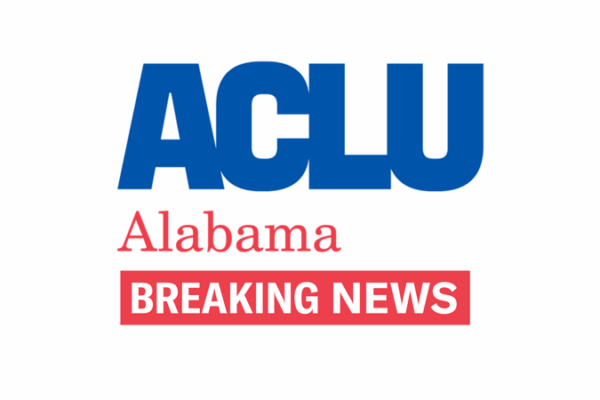MONTGOMERY, Ala. — A group of midwives and doctors filed a lawsuit in state court today challenging ongoing actions by the Alabama Department of Public Health (ADPH), which have imposed a de facto ban on freestanding birth centers throughout Alabama, preventing three such birth centers from providing much-needed pregnancy care to their patients. One center was forced to abruptly shut down operations earlier this year, despite a perfect safety record.
The lawsuit comes after ADPH has created significant uncertainty around the legal status of birth centers that provide midwife-led care by asserting that all such birth centers require a “hospital” license, even though they exclusively provide midwifery care to low-risk patients using a model of care that is safely provided in out-of-hospital settings across the country. At the same time, ADPH has made it impossible for any such birth center to even attempt to obtain such a license, creating a dilemma that is both unlawful and unjustified.
The lawsuit filed today brings several statutory and constitutional claims against ADPH, including:
ADPH lacks the authority to require birth centers to obtain a hospital license because midwife-led birth centers do not constitute “hospitals” under Alabama law.
Even if ADPH has licensing authority, it does not have the authority to ban birth centers altogether, and by failing to provide any path to licensure, the Department is imposing a de facto birth center ban throughout Alabama.
This de facto ban comes at a critical time for pregnant Alabamians or those seeking to become pregnant, as the state has the third highest maternal mortality rate in the nation, with Black women making up a disproportionate share of maternal deaths. Alabama also has the sixth highest infant mortality rate in the nation, with Black infants making up a disproportionate number of these deaths. One factor playing into this concerning trend is the growing number of maternal health deserts in the state. More than two-thirds — or 43 out of 64 — counties in Alabama have little to no access to maternity care. To address this disparity, midwives and providers are working to open birth centers to provide safe and welcoming environments for low-risk patients to access much-needed prenatal care and birthing services, especially for those who have decided that giving birth at home or in a hospital is not the right place for them to deliver, or impossible due to the lack of maternal care available in their area.
Statement from Dr. Heather Skanes, M.D., founder and executive director, Oasis Family Birthing Center in Birmingham:
“I founded the Oasis Family Birthing Center in response to Alabama’s maternal and infant health crisis, driven by a commitment to provide patient-centered, safe, and affordable care. Amid a dire need for accessible prenatal care and personalized birthing options, we created a haven where midwives offer exceptional care in a home-like environment. Unfortunately, Alabama’s Department of Public Health abruptly halted our services without regard to the high-quality care we were providing. Despite our pleas and willingness to demonstrate safety and value, they ignored us and left us no choice but to close. This lawsuit isn’t just about our center; it’s about equitable care for all. I hope the court will correct this injustice and begin to rectify Alabama’s history of harm to Black mothers and infants by supporting a proven approach that enhances outcomes and accessibility.”
Statement from Dr. Stephanie Mitchell, DNP, CNM, CPM, founder, executive director, and midwifery director, Birth Sanctuary in Gainesville:
“I established Birth Sanctuary in Sumter County driven by a mission to amplify midwifery care access. As a midwife serving patients in a maternity care desert, I’m bridging critical gaps, despite the challenges of rural distances. The need for birth centers is heightened by Alabama’s maternal health crisis, where midwifery care has proven to improve outcomes for mothers and babies. Birth Sanctuary holds promise in reshaping care delivery and countering these issues. Regrettably, a year of uncertainty caused by the Department of Public Health’s actions has impeded our progress. Midwifery is my vocation, and these obstacles directly impact my community’s wellbeing. We hope the court will recognize the needs of pregnant Alabamians, especially in light of maternal and infant mortality issues that have devastated countless families, and restore the ability of birth centers to serve patients.”
Statement from Dr. Yashica Robinson, M.D., founder, Alabama Birth Center in Huntsville:
“Since 2019, I’ve strived to establish the Alabama Birth Center — a place where midwives can offer safe, patient-centered care that on many measures surpasses hospital-based models. Despite my considerable investments, the uncertainty created by the Alabama Department of Public Health forced me to halt construction, delaying access to vital services for my community. As an obstetrician, I’ve embraced midwives’ approaches, witnessing their unique skills in building patient relationships and fostering patient autonomy. Midwifery-led birth centers offer proven benefits, contributing to our community’s healthcare capacity. Alabama’s dire maternal and infant mortality rates, especially among Black women and babies, highlight the urgency of these efforts. Hospitals are strained, and collaboration between doctors and midwives is key. It’s time for Alabama to support, not obstruct, our shared goal of better health for every mother and baby.”
Statement from Whitney White, staff attorney with the ACLU Reproductive Freedom Project:
“The Alabama Department of Public Health has no place regulating birth centers, but even if it did, its contradictory stance — demanding hospital licenses for birth centers while obstructing the path to obtain them — is both unlawful and unconstitutional. The recent actions by the Department impose an unjust ban on birth centers amid a maternal and infant health crisis, disproportionately affecting Black women and infants. We hope the court will prevent the Department from continuing its de facto ban on essential maternal care for pregnant Alabamians.”
Statement from JaTaune Bosby, executive director, ACLU of Alabama:
“The state of Alabama is making it difficult if not impossible for birth centers to survive. It has stood idly by as hospitals have closed and obstetrics services have become obsolete in many areas of the state. They have looked the other way as patients have had to travel long distances, across county and even state lines, to receive basic health services simply because they live in an area where adequate care does not exist. Obstacles and barriers erected by state lawmakers and agencies prevent individuals, like our clients, from helping their patients. More birthing centers are needed here. Midwives and doulas are needed here. Their services provide hope and will save countless lives.”
The lawsuit, Oasis Family Birthing Center et. al. v. Alabama Department of Public Health, was filed in the Fifteenth Judicial Circuit Court in Montgomery by the American Civil Liberties Union, the ACLU of Alabama, and Bobby Segall of Copeland Franco on behalf of Oasis Family Birthing Center in Birmingham, Heather Skanes, M.D., Alabama Birth Center in Huntsville, Yashica Robinson, M.D., Birth Sanctuary in Gainesville, Stephanie Mitchell DNP, CNM, CPM, and the Alabama affiliate of the American College of Nurse-Midwives.
A copy of the lawsuit complaint filed today can be found here.
A copy of this release can be found here.
Related Content

Alabama Court Rules Against Midwives and Birth Centers in Challenge to Restrictive Hospital Licensing Rules, But Case Will Continue
Stay Informed
Sign up to be the first to hear about how to take action.
By completing this form, I agree to receive occasional emails per the terms of the ACLU’s privacy statement.
By completing this form, I agree to receive occasional emails per the terms of the ACLU’s privacy statement.

